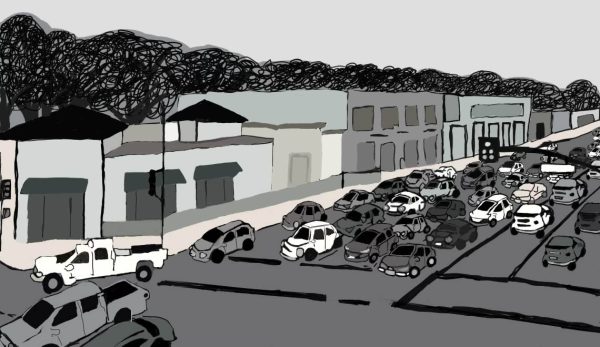Bring awareness to global issues
A globe to represent the need to learn about multicultural issues.
February 10, 2023
The smell of traditional Persian stews fills the air as I sit down for my daily family dinner. Normally, when I sit down to eat, my parents and I exchange small talk and catch up with each other about our days. Recently, though, a frequent and more serious topic of conversation at family dinners has been the worldwide protests in response to the government killing of Mahsa Amini.
My parents both immigrated from Iran to the U.S. as teenagers during the Iranian Revolution, so I’ve grown up hearing the stories of my parents leaving everything behind to escape their home country. Hearing those stories has made me grateful for the opportunities I have, but it makes me feel profound sympathy for my family members who weren’t lucky enough to escape. Learning more by talking to my family through WhatsApp calls, I feel increasingly distressed about the struggles they have endured. Even though the conflicts are happening over 7,000 miles away, Iranian issues still have an impact on me, even if I’m not directly affected by them.
But at school, I often don’t hear the international perspective I gain from family discussions, calls with faraway relatives and my mom’s passionate Instagram posts about women’s bold activism in Iran. Our curricula, especially in history and social studies courses, should be more all-encompassing and utilize worldwide events in comparison to the past. Teachers are certainly making an effort to discuss international affairs: My history teacher touched on protests in China against government censorship when teaching the French Revolution, but the curriculum did not allow her to go more in depth.
There is an inherent value to an international perspective and a need for consistent conversations about a variety of international events in our classes. Being knowledgeable about contemporary global issues gives us context to better understand the country we live in and the history and literature we study in class. We must remain inclusive of all backgrounds, enabling us to stray from one-sided views. We live in a nation of immigrants, and many of us have ties to events overseas. Let’s acknowledge those experiences in our school community, reserving space in curricula for discussions of international events.
These discussions do not necessarily need to be confined to the classroom. The school could be holding larger-scale conversations and speaker events to further educate students. For example, Marlborough School hosted a panel of Iranian-American speakers to tell students about Iranian protests Oct. 11. The school should follow suit, planning similar events and shedding light on relevant global issues.
There is real-world importance to an international perspective; the issues the school works to inform students about help dictate the discussions I have with my friends. At home, I’m exposed to foreign issues because of my parents, but the friends that I talk to are completely unaware of what’s happening outside America. The school has the power to make sure students are having important conversations about the world around them, and they should be doing such.
Knowing about various issues and inequalities from around the world will prepare us for our lives — many students will go on to pursue careers in other countries and work on a global scale. A number of students will attend international universities, meaning that the ability to talk about issues from a more informed perspective will be a necessity. As a school that values inclusivity within our community, we need to make sure to place value on all contemporary political issues, not just American ones.






































